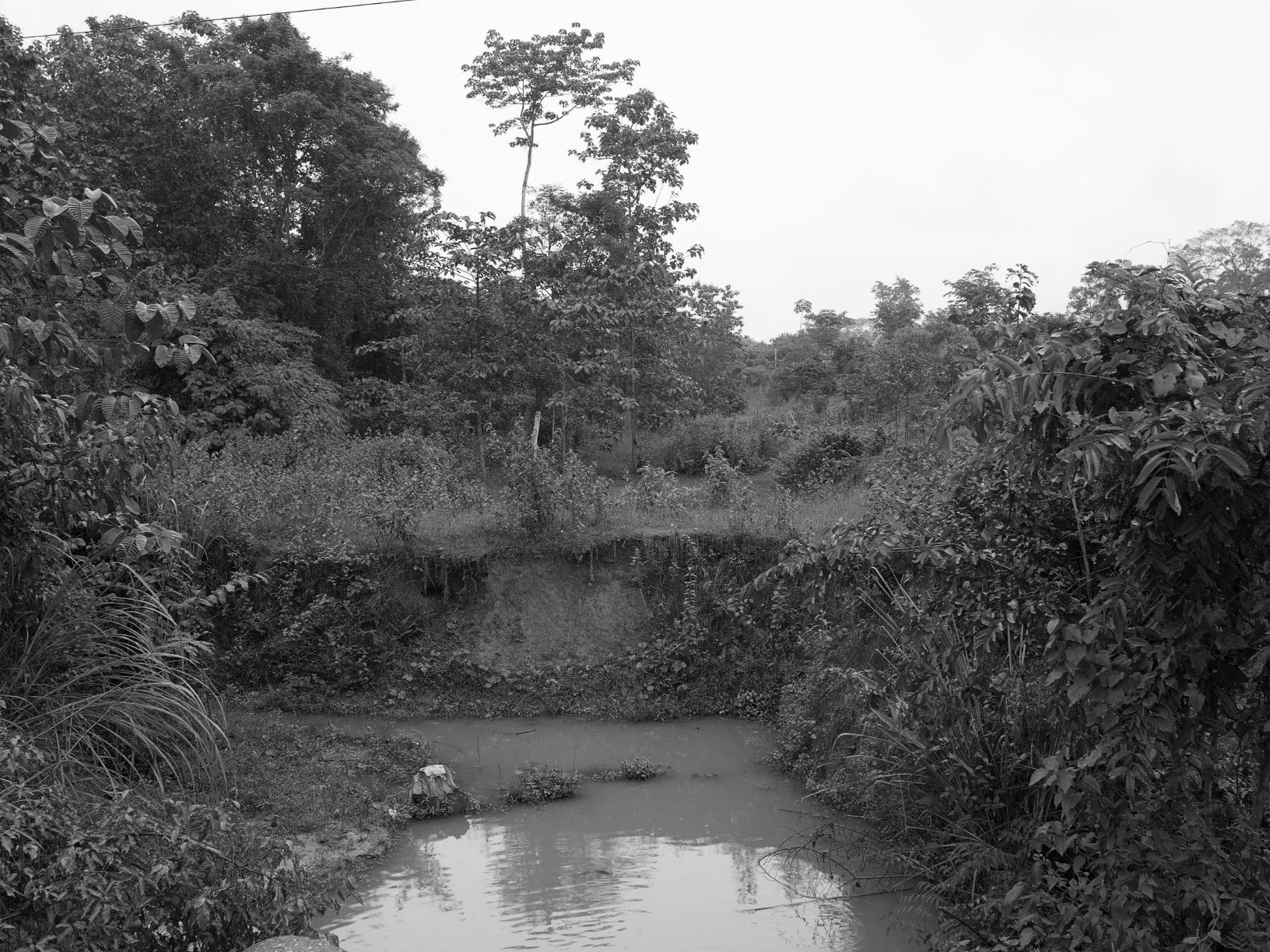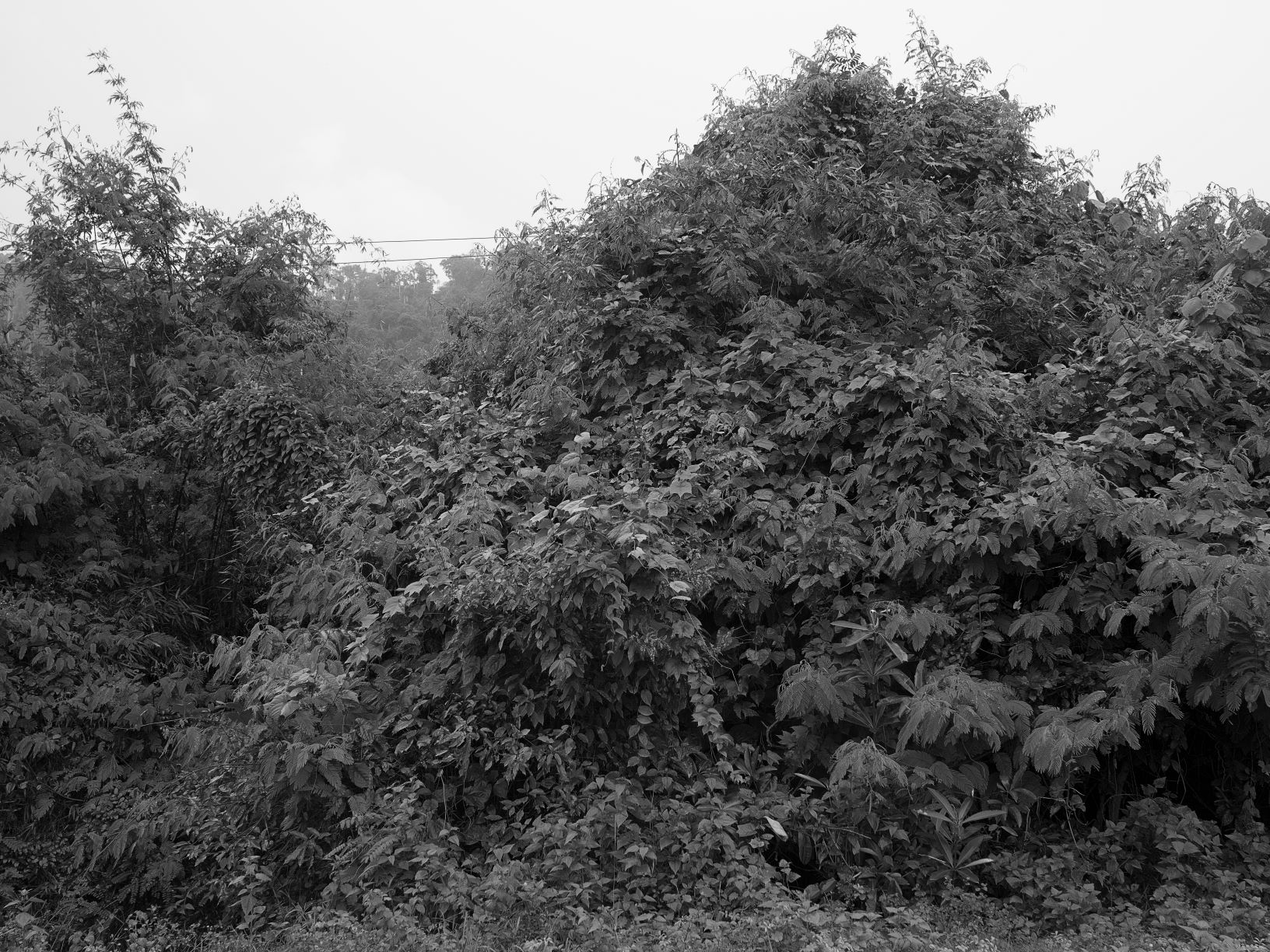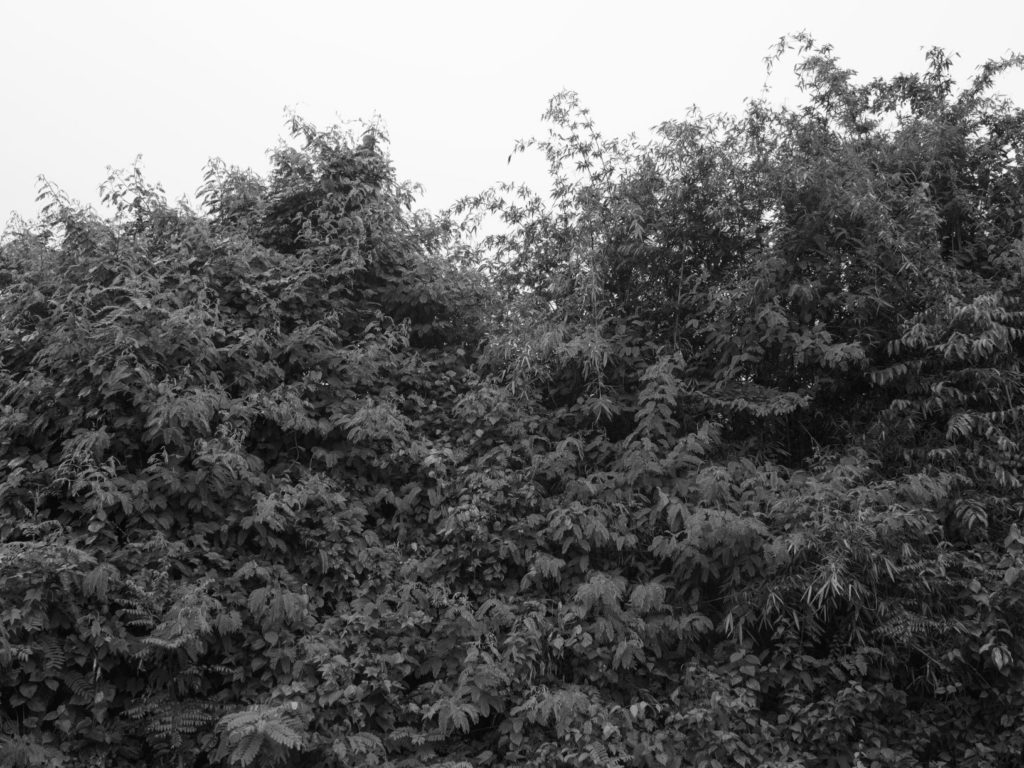“The Story” & “Father”
Two stories by visual artist and photographer Pao Houa Her illuminate the transformative presence of plants within personal, familial, and political histories, from the midst of war in the jungles of Laos to a kitchen in Minnesota.

“The Story”
The story is always the same. An American-issued AK-47 in my father’s hands, my mother following. My sister in my mother’s belly, and I on her back, as we ran from the raid that was expected to take place in our village that night. Freedom was slowly escaping us so we ran, frantically, searching for it. A whole month, my grandmother, two uncles, their wives, my father, my mother and I hid deep in the jungles of Laos, eating nothing but forest roots, fearing for our lives and depleting my mother’s breast milk. Sense and good fortune led us to the other villagers who also fled their homes, leaving behind animals and other belongings. Everyone traveled together in packs, feverishly trying to reach the Mekong River for a chance at life. I, being the only baby in this pack, held my father and mother back from reaching the Mekong River.
“She cries too much.”
“The Viet Congs are going to find us because of her.”
“We’re all going to die.”
Somebody handed my father a tin can filled with opium tar and forced him to rub it on my gums. With his pinky finger, he dug into the tin can, took out a small amount of dark, sticky opium and rubbed my gums with it. Within minutes, I succumbed to the opium and fell into a deep slumber. They made progress. The next day, although my body was still warm, my mother feared that I was dying, slowly. Scared, my parents asked my cousin Vue to urinate into a makeshift cup made from banana leaves for me to drink. They believe that urine, when reintroduced into the body, can boost a body’s immune defenses and stimulate healing in a way that nothing else does. He did, and as my father likes to end this story, I’m living today because I drank cousin Vue’s urine.
The story is always the same, whether told in the tundra of Minnesota, chicken farm country in Oklahoma, bamboo-infested forest in North Carolina, or the orange groves in California.
“Yes, this is my oldest—you remember, the one that drank Cousin Vue’s urine.”
“Of course, that’s why she’s so healthy now.”
“She was the only baby from our village to not die from opium.”
“Uncle Tong lost his youngest because he gave him too much opium.”
“I didn’t want to give it to her but the villagers were so scared of being caught.”
“I had given her too much and I was so scared that I killed her.”
“For two days her mother carried her limp body on her back.”
“We were ready to leave her on the side of the road but her mother refused, saying she wanted to wait until we came to a resting place.”
“Thank god we did, and thank god cousin Vue was with us.”
“She is alive and well today because she drank cousin Vue’s urine.”
My father, telling this story without fail, turns to me and says, “mi nai, your parents love you so much that they weren’t even willing to leave you on the side of the road, like all those other babies. You have to make sure that you take good care of them for the rest of their life.” How heavy my shoulders have always been.

“Father”
My father was born somewhere between Phonsavang and Vang Vieng, Laos. He doesn’t know when or where he was born, just that it was after the first tilling of the rice fields. His father died when he was a child. Legend has it, his father became a great white tiger. As tradition would have it, his mother, my grandmother, remarried her dead husband’s younger brother and became his second wife. She never spoke much of my grandfather, just that the first time he saw her, he came back the next day and asked my great-grandfather for her hand in marriage. My father doesn’t talk much about his childhood. He speaks of hunting with his brothers and vaguely remembers the three sisters he lost to diseases unknown to him. He speaks about his older brother often, the one who went off with General Vang Pao when he came to my father’s town, recruiting men and boys to fight for the Americans. He speaks about him often: about the way he hunted, about the way he played the qeej (a Hmong instrument), about folk songs he used to sing on their way to the garden, about the way he left without saying a word to my father, about never finding his way back home after the war, about how my father had to grow up too soon because his brother, my uncle, never came back, about never knowing if my uncle is really dead or alive somewhere in Vietnam. My father speaks about my uncle often.
My father never used to speak about his role in the war. He never used to speak about the friends he lost, about the day he had to decide between his life or that of his friend, who was captured and later killed, the Viet Congs he killed, the shrapnel that’s still lodged in his left thigh that gives him pain when he overworks his legs, or how he missed the mine that took his cousin’s life in front of him. He never used to speak about these experiences, maybe because we were too young to understand the things he had to do to survive, so that he could live, so we could live.
My father doesn’t speak about Laos, like the way my grandmother used to before a great white horse came and carried her back to Laos. He doesn’t miss the farming, the bamboo huts, the dirt floors, the wooden beds, the four-mile walk to school, the absence of electricity, eating jungle forest roots, running for his life and not knowing where he’ll live next. What he does miss is the freedom: the freedom from debt, the carefree life he once lived, and not having to worry about how or where he was going to find food for his family.
Today, he stays home and watches my baby brother and my nephew, and waters my mother’s plants—the lime tree whose leaves they use to make curry, the plant my mom uses to cure us of our indigestion and the plant whose leaves she puts over our cuts to help with scarring. With an episode of Curious George blaring in the background, he stands in front of the stove making rice. It’s been five years he’s been without a steady job. Golden Valley Microwave Food in Edina, MN, was his first and last real job. He worked his way up to Lead Mixer but soon after that, like many companies, his company moved to Mexico and he lost his job. He works here and there, but now his job is to watch over my brother, nephew, those plants, and to make rice for his family. He’s a kind man, humble and giving. He encourages us to not be like him and my mother, dumb. He stresses the importance of school, the value of knowledge, and being kind to others. He says that if he had to do it all over again, he would have gone straight to school when he first got here, learned English and a trade that could provide him a steady job. But he can’t do it all over again, so while his kids attend school and his wife works, he watches my brother and nephew, makes rice, and waters my mother’s plants.

This article is part of the series Seeing Plants: Vision and Botany in Contemporary Art, guest edited by Regan Golden.